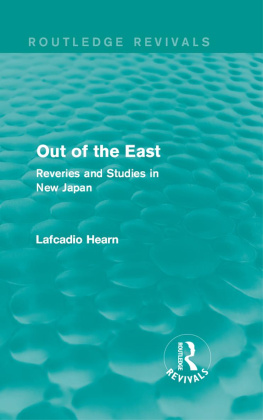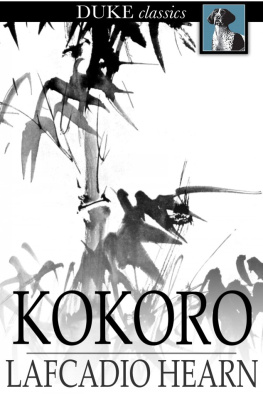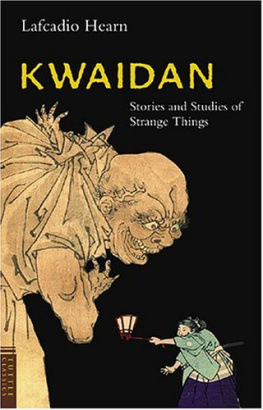Moral Order and Social Disorder
Moral Order and Social Disorder
The American Search for Civil Society
Frank Hearn
First published 1997 by Transaction Publishers
Published 2017 by Routledge
2 Park Square, Milton Park, Abingdon, Oxon OX14 4RN
711 Third Avenue, New York, NY 10017, USA
Routledge is an imprint of the Taylor & Francis Group, an informa business
Copyright 1997 by Taylor & Francis.
All rights reserved. No part of this book may be reprinted or reproduced or utilised in any form or by any electronic, mechanical, or other means, now known or hereafter invented, including photocopying and recording, or in any information storage or retrieval system, without permission in writing from the publishers.
Notice:
Product or corporate names may be trademarks or registered trademarks, and are used only for identification and explanation without intent to infringe.
Library of Congress Catalog Number: 97-18771
Library of Congress Cataloging-in-Publication Data
Hearn, Frank.
Moral order and social disorder : the American search for civil society / Frank Hearn.
p. cm.(Sociological imagination and structural change)
Includes bibliographical references and index.
ISBN 0-202-30603-8 (cloth : alk. paper).ISBN 0-202-30604-6 (paper : alk. paper)
1. United StatesMoral conditions. 2. United StatesSocial conditions1980- 3. Social problemsUnited States. 4. Social valuesUnited States. 5. Civil societyUnited States. I. Title. II. Series.
HN90.M6H381997 | 97-18771 |
306.0973dc21 | CIP |
ISBN 13: 978-0-202-30604-9 (pbk)
Hope implies a deep-seated trust in life that appears absurd to those who lack it.
Christopher Lasch
It is only for the sake of those without hope that hope is given to us.
Walter Benjamin
For Jill, Michael, Caitlin, Jim, and Jackalone and together you are the hope given to me.
Contents
This book has its roots in two courses I regularly teach at the State University of New Yorks Cortland College, Sociological Theory and Social Breakdown in the United States. Explicitly in the former course and implicitly in the latter, I try to apply the insights of classical sociological theory to contemporary American society. My efforts in this regard have been enriched invaluably by the undergraduates in these courses. Their interest, inquisitiveness, patience, and demand for clarity and coherence helped bring me to a better understanding of the issues that reside at the center of this book. While elected and appointed officials formally responsible for the well-being of the State University of New York gleefully enact destructive budget cuts and in other ways express their contempt for SUNY and its students, Cortlands undergraduates, most of whom are members of the first generation of their families to attend college, sustain their desire to learn. I am indebted to them.
Helpful comments on early drafts of the manuscript were given by Sheila Myers and Del Palm, each of whom read several chapters, and by Jill Hearn and Gavin Kitching, both of whom gave the entire manuscript a very careful reading. I thank them for their suggestions, criticisms, and kind words of encouragement.
The text itself reveals my debt to those whose work over recent years has cleared and cultivated the ground on which my argument stands. I have been greatly influenced by the writings of Robert Bellah, James Coleman, Christopher Lasch, Michael Sandel, Michael Walzer, and Alan Wolfe, most especially his important and inspiring Whose Keeper?.
Gilda Haines, with the assistance of Michelle Pless and Krista Carlton, put the manuscript in shape for publication. A superb administrator and as decent a person as you could ever hope to find, Gilda regularly took time from her extraordinarily busy schedule to assure that my work was done promptly and well. I am grateful to her for this and for all else she does to make life pleasant for faculty and students in the Department of Sociology-Anthropology.
At Aldine de Gruyter, Richard Koffler, executive editor, moved the manuscript through the review process with humor, and attentive care. Managing editor Arlene Perazzini, brought a sharp eye to her close reading of the manuscript, ridding it of silly mistakes and clumsy formulations. The awkward renderings that remain should be taken as a sign of my stubbornness and Richards and Arlenes admirable willingness to give the author the benefit of the doubt.
Addressing the moral crisis he found plaguing modern society at the start of the twentieth century, mile Durkheim ([1912] 1965:475) observed that the old gods are growing old or already dead, and others are not yet born. Thus we find ourselves ina period of moral cold which explains the diverse manifestations of which we are, at every instant, the uneasy and sorrowful witnesses. Today, at the centurys end, all the old gods are dead, but their bodies and souls are marketed to the uneasy and the sorrowful, used to sell candidates for public office to the politically perplexed and indifferent, megachurches to that unchurched multitudeseekers, as they are called in the businesscommitted to salvation by entertainment, and a false sense of security to those made anxiously bewildered by their inability to give order to the course of their lives. Family values, community, and personal responsibility are pushed as the institutions of family, marriage and parenthood, and ongoing communal interdependencies decay. Virtue, character, and soul sell well as the social contexts from which they arise deteriorate. Compassion, altruism, morality, and volunteerism are heralded as the social sentiments that fuel them lie uncultivated. In commodified form, designed to stimulate and thereby command the attention of the easily distracted, the dead gods testify to the social breakdown their resurrection is intended to disguise.
This book is about social breakdown in the contemporary United States. Society is made up of social institutions and communitarian interdependencies. The former consist of ideals, statuses, and obligations that define people as social beings and order their relations to one other in ways that both assure the reliable satisfaction of important human and social needs and sustain solidarity. Interdependencies are communitarian when the people they link share a community of concern characterized by mutuality and trust. In John Braithwaites (1989) words, they combine a thick network of individual reciprocal attachments with strong cultural commitments to mutuality of obligation (p. 85). A society breaks down when social institutions lose their legitimacy and ability to motivate and shape the identity of their participants, and when the communities of concern supported by communitarian interdependencies lose the capacity for social control that enables them to regulate their members behavior in accordance with common expectations. Social breakdown displays itself robustly in both forms, in deinstitutionalization and in the deregulation of social life that results from the diminution of social control, in the United States today.
The visible weakening of social institutions like the family, and the deep erosion of the communitarian interdependencies that feed neighborhood, community, and associational life represent the culmination of a long-standing conflict between liberal modernity and society. First established in the West in the eighteenth and nineteenth centuries, liberal modernity takes as its unassailable end the creation of arrangements that secure the individual his freedom to chose how to live. From this view, societythe virtuous constraints imposed by social institutions and the collective expectations sanctioned by communities of concernis the enemy of the individual and his freedom. Championing the individual are the two most powerful carriers of liberal modernity, the liberal or capitalist market economy and the liberal state that grows to become a welfare state. Over the years each expanded in the name of furthering individual freedom.










